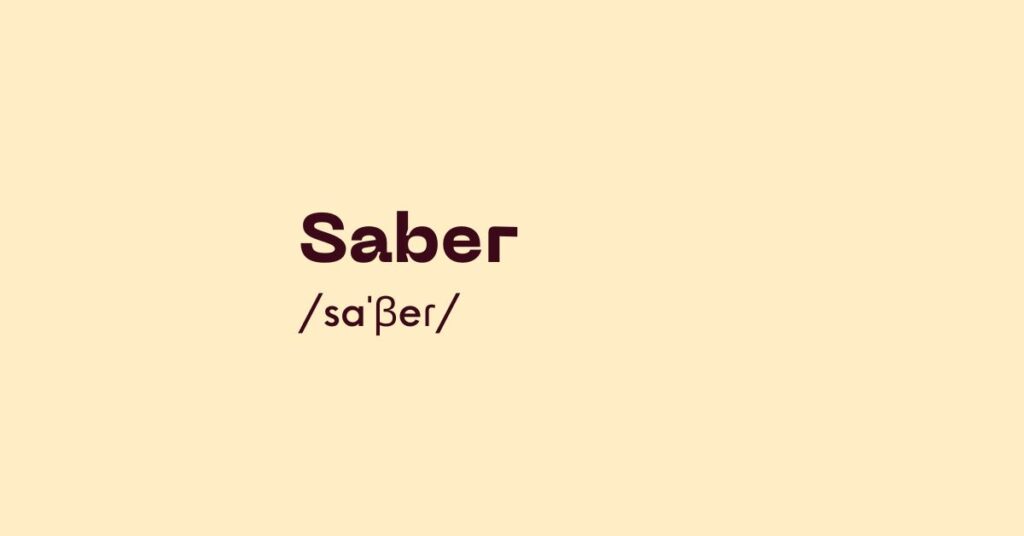Today’s Spanish word of the day is “saber”.
It’s a verb meaning “to know”. In particular, it refers to things like knowing facts and knowing how to do things, rather than knowing people, for which there is another verb (“conocer”).
Here are a few examples of how “saber” and “conocer” can be used:
- Sé la respuesta. – I know the answer. (saber)
- Él sabe nadar. – He knows how to swim. (saber)
- No conozco a Juan. – I don’t know Juan. (conocer)
The word “saber” comes from Latin sapere, which meant “to be intelligent” or “to have good taste”. It’s related to the Spanish word “sabor” (“taste”), as well as the English words “savor”, “sapient”, “savant” and “savvy”.
“Saber” is an irregular verb. Here’s how to conjugate it in the present tense:
- Ellos/Ellas/Ustedes saben – They know, You know (plural)
- Yo sé – I know
- Tú sabes – You know
- Él/Ella/Usted sabe – He/She/You know
- Nosotros/Nosotras sabemos – We know
- Vosotros/Vosotras sabéis – You know (informal plural, only used in Spain)
Example sentences
No sé qué decir.
I don’t know what to say.
¿Sabes hablar japonés?
Do you know how to speak Japanese?
Ella sabe mucho sobre historia.
She knows a lot about history.
Mi perro sabe abrir la nevera… pero no sabe cerrarla.
My dog knows how to open the fridge… but doesn’t know how to close it.
Saber que no sabemos nada es el principio de la sabiduría.
Knowing that we know nothing is the beginning of wisdom.

